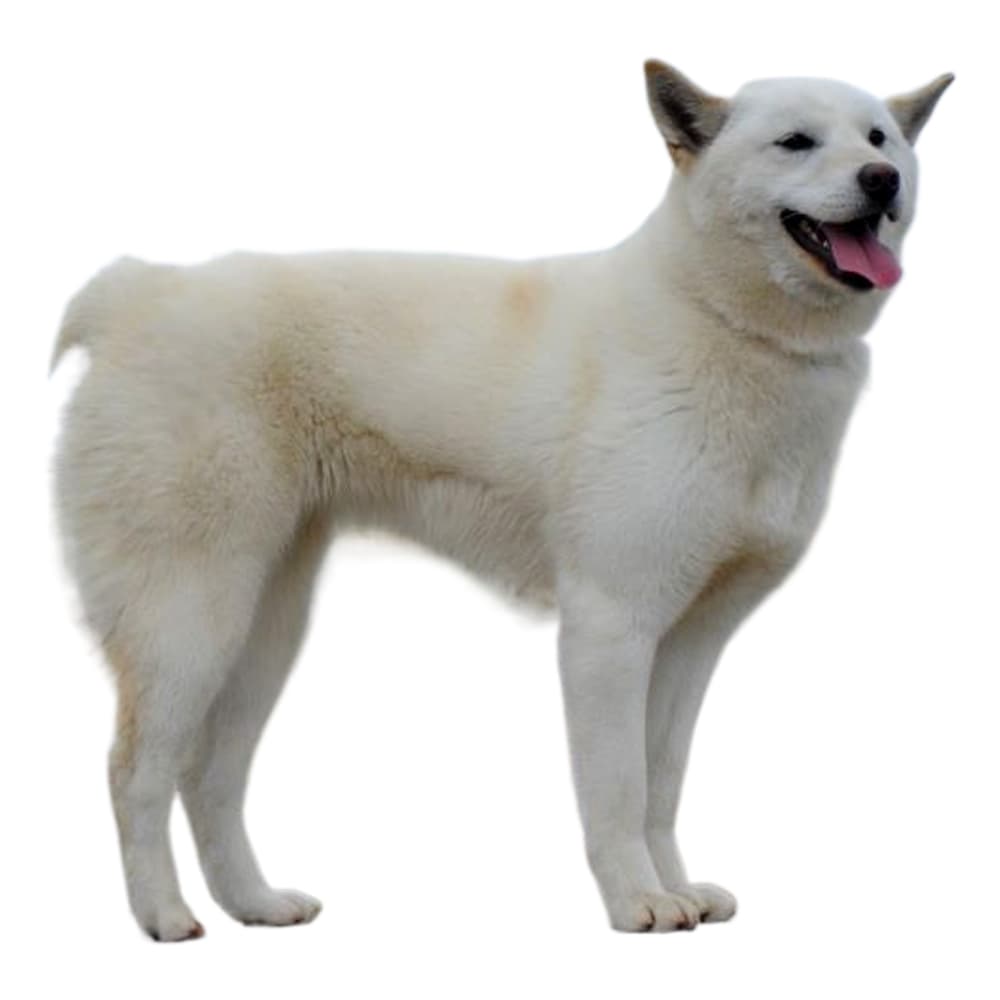Discover your dog's connection to this breed and 200+ others


Discover your dog's connection to this breed and 200+ others



The DongGyeongi is a rare dog breed from Korea. Scientific studies assert that the breed has been around in Korea for at least 1,000 years. The physical feature that these dogs are most recognized for is their lack of a tail (sometimes a bobtail). The DongGyeongi also display some similarity to the Jindo breed. They originated in the coastal Korean city of Gyeongju. During the Japanese Colonial Era, many dogs were unfortunately killed because they resembled the Komainu, which were the lion-like statues that guard the entrances of many Japanese shrines. The Japanses also saw their stump tail as a sign of bad luck. The Donggyeongi now a protected breed, and has been listed as a national treasure in Korea since 2012.
Currently, there are no known genetic conditions tightly associated with the DongGyeongi breed. As for all breeds, genetic screening is recommended to assist veterinarians with diagnosis and proactive care, as well as help breeders identify affected and carrier dogs.
There is not much information about the DongGyeongi's temperament or personality, but they are generally thought to be friendly. They arealert and active, require early socialization and training, and are better suited to experienced dog owners.
A canine genetic lineage is a group of individuals or entire breeds that descended from common ancestors predating modern breed formation. Often these lineages are associated with a ‘type’ of dog with a unique historical working role and associated behaviors (e.g., herding, scent hunting, etc.).
Spitz and Sled Dogs originate in the Arctic and subarctic regions which caused them the develop adaptations to cold climates. Some of these adaptations give rise to characteristics of the lineage, most notably a dense double coat that helps with insulation. The lineage of these dogs can be followed back to ancient breeds developed by Indigenous people. These ancient breeds were used as an aid for transportation, herding, guarding, and hunting. These jobs have created dogs that are independent, intelligent and have strong work ethics as well as a sturdy body that helps them to pull sleds or go on long journeys over rough terrain.
Example breeds with ancestry from this lineage include Akita, Chow Chow, and Siberian Husky.
The DongGyeongi is the only dog breed in Korea with a short tail.
They are an endangered breed that has been protected by the Cultural Heritage Administration of Korea since 2012.
According to an article in the scientifiic journal Nature, there have been reports of the DongGyeongi breed including old Korean records, including the Dongkyung jabki (published in AD 1669) and the Sungho sasul (published in AD 1740), as well as the clay doll representations of DongGyeongi that were excavated from the remains of the ancient Kingdom called Silla, which is said to prove that this breed has been in Korea for at least 1,000 years.
https://dogbreedsfaq.com/asian-dog-breeds/korean-dog-breeds/
https://www.nature.com/articles/s41598-017-10106-6 http://dx.doi.org/10.7853/kjvs.2012.35.3.207
Recommended by top vets with decades of experience
21 breeds
64 genetic health markers
50 genetic trait markers
